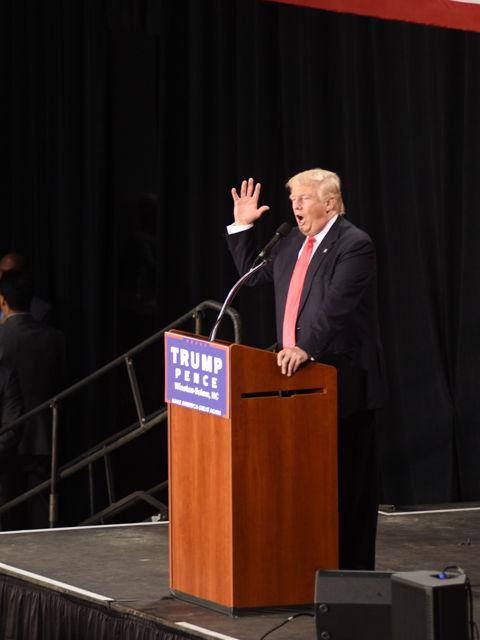The Spring Big Poll has been released by the Pack Poll, and illustrates record-low approval ratings for President Donald Trump.
A representative sample of 876 students responded to the poll out of the 4,500 students contacted. Ryan Proctor, an undergraduate researcher for the Pack Poll and a senior studying political science, commented on the matter.
“We’re still far above a lot of the national polling,” Proctor said. “We had almost a 20 percent response rate. Many of those folks, like CNN and The New York Times, they’re talking about response rates of 5 percent.”
The poll featured a series of similar questions to prior polls for comparison analysis. According to Proctor, the students at the Pack Poll compiled their questions from popular national issues and student-based concerns. In his words, “we call it a big poll for a reason.”
The Pack Poll has been released over several semesters, providing different views of where campus attitudes rest; in addition, many students and social science researchers have been able to benefit from the data sets provided by the Pack Poll, according to Pack Poll faculty adviser Mike Cobb.
“It’s all for public consumption,” Cobb said. “Sometimes, students use this for their own research papers.”
At NC State, Trump’s disapproval ratings were measured at 68 percent with 53 percent of students surveyed strongly disapproving of his handling of his job as president.
“These are some of the lowest numbers that we have seen, being significantly lower than the nation as a whole,” Proctor said. “There was actually some talk about how in traditional election cycles, a president would receive a post-election bump. Trump has not enjoyed that much at all; he received a very minor bump and proceeded to produce record disapproval ratings in the United States.”
In addition, all students who responded showing support for the president identified as Republicans. Compared to Barack Obama’s Fall Big Poll ratings in 2016, Trump’s disapproval ratings were 28 percent higher.
Part of the poll asked students how they believed that a repeal of the Affordable Care Act would affect them, later rephrasing the question using Obamacare. Between the two, more students responded that a repeal of the Affordable Care Act would “be bad for me,” with nearly 35 percent of students responding that they were unsure in both questions.
“It’s an effect that we have seen, such as in the early days of the ACA program where people were significantly less informed about the effect of what the effects of what the bill is doing,” Proctor said. “Some of this is as simple as partisan I.D. These things kind of drive your decision making in some irrational ways.”
Cobb added to Proctor’s point, noting that the questions were inspired by exterior inspiration and common partisan biases.
“Calling it Obamacare changed what Republicans and Democrats did a little bit compared to the ACA,” Cobb said. “We had an idea that that might happen, and it is why we tested that.”
According to the Poll, general concern for the future of the United States continues with 64 percent of respondents thinking that the United States is generally headed in the wrong direction. With regards to the president, 54 percent of respondents reported being willing to approve of Trump if he “does a good job” or “delivers what I want.” Regardless of future concerns, Proctor holds that current attitudes are unapologetically negative toward Trump.
“Students just really do not like Trump,” said Proctor. “It’s been shown in a lot of the policy questions that we asked. You’ll find that a vast majority of these questions will show support in the opposite direction of Trump’s standing policies.”








